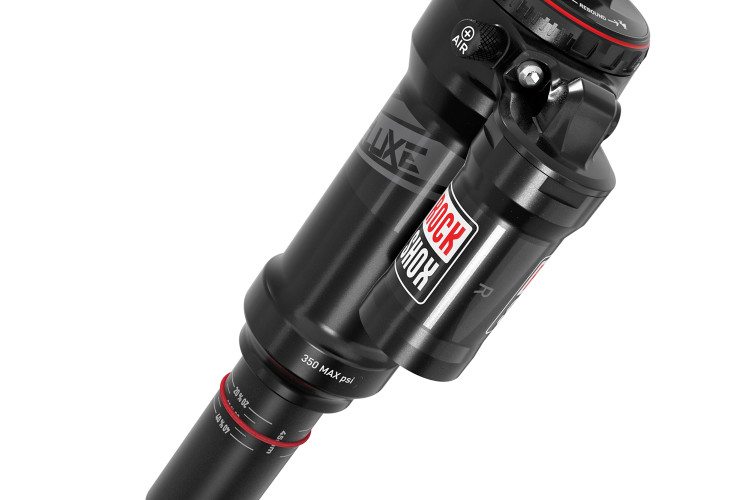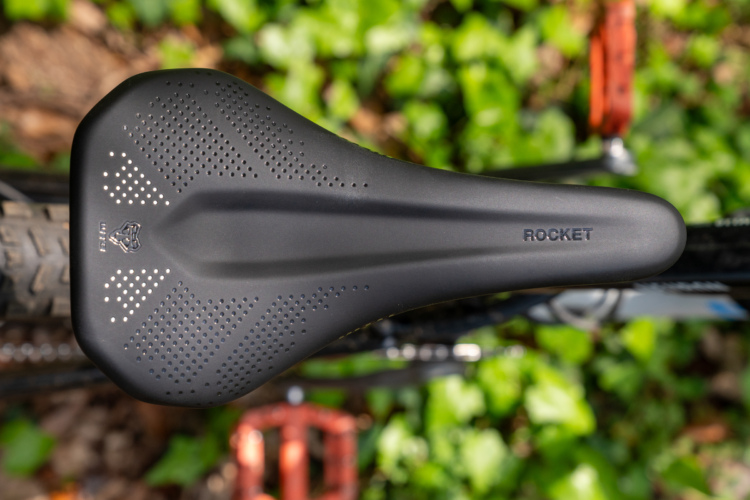
Last week, after a video surfaced of George Floyd, an unarmed black man who was killed while being detained as a suspect for using counterfeit money at a convenience store by the Minneapolis Police Department, protests erupted nationwide. The video put an uncomfortable spotlight again on the inequality of race in America.
Like the current Coronavirus pandemic, bike brands quickly sought ways to help out, and athletes and people within the industry began talking about inequality, how it relates to mountain biking, or more broadly cycling, and what we can all do not only to make the sport feel more inclusive, but also, the world.
It’s no secret that the majority of mountain bikers are white, and also male. While there are countless factors that play into this result, like poverty, barriers to entry, cultural influences, and where someone lives, there is no valid argument that it should remain this way. A few bike brands over the weekend, including Specialized and SRAM, made statements on social media that they are thinking about how to best help, angering some customers, cyclists, and mountain bikers. Two smaller brands, however, are diving into the fight, and putting their money where their mouth is.
Velocio, the premium apparel brand based out of the New England area donated a total of $30,000 to two organizations over the weekend; Black Lives Matter (BLM) and the ACLU.
“Given the events in cities and communities around the country of the last 72 hours, the anger at the deeply rooted racism and police violence facing Black communities, we’ve been sorting how best to respond as a small brand,” they said Sunday on Instagram. “The cycling and outdoor industries have mostly ignored racism, paralyzed by privilege and challenged to use it for good.”
“Watching the events of the last week was painful and we met as a staff and spoke with Black ambassadors and athletes and friends of the brand to sort out what they wanted to see from us,” says Andrew Gardner, co-founder and marketing director of Velocio. “Remaining silent wasn’t an option in their eyes and that echoed what Ayesha McGowan, a professional cyclist and advocate wrote when she said that ‘silence is agreement.’ We founded Velocio with a focus on a better cycling experience and that means a better cycling experience for everyone. The donations are a part of a broader effort on our part which includes more representation in our marketing (an effort we were making prior to this week) more ambassadors from diverse communities and examining our hiring practices. We hope it will help others in the industry increase effort around representation and facilitate anti-racist resources.”

Although Gardner is white, he, like others, is finding that now is the time to unite, and help where he can.
“I can empathize with other white brand owners who look at the racism and say, ‘I’m not racist, but I’m white and my voice isn’t representative of this lived experience.’ It’s scary to walk into a fight that isn’t yours, but it is yours, ours, anyone’s who wants change. People of color feel marginalized and see the industry silence as complicity. I don’t think the industry wants this but to change it, that means going out to communities of color and saying, ‘we’re getting this wrong. Help us do better.’
Machines for Freedom, a cycling apparel brand made by and designed for women announced on Instagram that they would be matching donations up to $10,000 to organizations that are standing for racial justice, like the NAACP and Black Lives Matter. Followers of Machines for Freedom lauded the brand for stepping in and acknowledging the issue.
For bigger brands like Specialized and SRAM, with a mass global appeal, toeing the line and finding meaningful ways to support people of color looks like it might be more challenging. Specialized wrote a statement, and posted it on Instagram on Sunday.
“Cycling has a problem with race. For decades, cycling has been a walled garden of exclusion, from the community to the lack of representation to the marketing—you name it. We’re owning that we’ve been part of that problem, and with the utmost humility, we’re acknowledging that we need to work harder at being part of its solution.”
The confessional was an acknowledgment, rather than action, Specialized said in the statement. Followers insisted they were aware, and that the brand should take even greater steps to address inequality and the lack or representation in the sport.
Others said the statement alone was enough for them to consider buying their next bike from Specialized.
SRAM and RockShox took the matter one step further, and posted an image on Instagram that said ‘Black Lives Matter.’ The post wasn’t nearly as popular with everyone, with some followers countering.
“All lives matter.”
“Unfollowed.”
“Time to switch to Fox.”
“Way to virtue signal.”
Minneapolis-based Salsa Cycles added their thoughts on Instagram as well on Monday. “Our team is grieving for George Floyd and countless others before him. We are marching for justice, cleaning up and protecting the neighborhoods we call home, as well as donating time, money, and supplies throughout the Twin Cities. Many of us are seeing racism through a new lens and it is driving us to commit to change and action.”
“The real work is ahead of us, and we are forming a plan to make a larger impact to address systemic racism. Black Lives Matter.”

Whether it’s virtue signaling, or a way to reinforce or gain a relationship with a new market segment, it doesn’t seem like any of these brands would want to risk losing a large portion of their mostly white customers because they want to appear to care, and Velocio has already doubled down, with tens of thousands of dollars going to BLM and the ACLU.
In the process of changing behavior, there is a continuum that starts with pre-contemplation, contemplation, and preparation to make a change, before action and maintenance. If some of the bike industry’s largest and most influential brands are finally contemplating more ways to make cycling and mountain biking more diverse, the risk seems worth taking, at least based on the outcome of the relationship that Nike and former San Francisco 49ers quarterback, Colin Kaepernick had.
Angry Nike customers ripped the logos off of their clothing, burned new pairs of sneakers, and swore off the brand for life. According to Vox however, the partnership, which consisted of advertising centered around Kaepernick’s decision to sacrifice his career in order to protest police brutality brought the brand billions of dollars in value, and the commercial won an Emmy.
As we are only a week into another important discussion of race in America, a lot is still unfolding, but this is the first time that we know of, that so many mountain bike brands have spoken out and are acting on it at the same time.
At a minimum, they might lose customers, but they know that. Then of course, if they lose some customers, they’ll likely reinforce relationships with other customers who are passionate about racial justice and progress. If more decide to donate, then organizations which act on behalf of racial justice and activism might have more money to enact change in Washington. If they decide to change their own hiring practices and promote more inclusivity, more people of color might feel comfortable trying a new sport, like mountain biking. Thus far, the risks appear to be in the brands’ favor, if not all of ours.





















29 Comments
Jun 3, 2020
Jun 3, 2020
I say I am part of the problem because my white ancestors created this system/problem, and I want to be part of dismantling it. The fight for racial equality and equity has to include white people, as it's not the job of BIPOC to tear down and rebuild the bias institutions that white people created and directly benefit from.
As for not having biases, that's impossible. Not talking about them nor trying to unpack where they come from so we can grow and change is where the real problem sits.
Jun 3, 2020
Jun 3, 2020
Jun 4, 2020
Jun 2, 2020
Jun 3, 2020
Jun 4, 2020
Jun 5, 2020
Jun 4, 2020
Jun 4, 2020
Matt was not ranting nor venting with his above writing and the article does not "judge the police," as you mentioned. This article reports on a news event that directly relates to mountain biking, and we will continue to share news with our readers on this and similar important topics.
We stand by our work. If you don't want to read about topics like this one, there are thousands of others to enjoy. If you don't want to have a constructive conversation about a topic that everyone can learn from, maybe commenting isn't a helpful action?
Ima take a break from replying to folks who just want to pick a fight. There are more important places to put my energy.
Jun 3, 2020
I am talking to much. In this time it is time to listen. I don't have the perspective of a minority and can never understand what they have experienced and feel. Maybe the first step would be to ask minorities what would draw them to mountain biking and make it an activity they are interested in. The one thing I know we could all agree on is that cheaper quality bikes would help. I little humor on a heavy topic.
Matt, I appreciate the article even if I differ on some points. Brian way to get you colleague's back.
Jun 3, 2020
Jun 3, 2020
Jun 3, 2020
Jun 3, 2020
Jun 3, 2020
Jun 6, 2020
Jun 2, 2020
Jun 3, 2020
Jun 3, 2020
Jun 3, 2020
Jun 3, 2020
I don't intend to diminish the often dangerous work cops do with my response. My intention is to signal an important distinction in the level of choice and power between police officers and black civilians.
I worked in a homeless youth drop-in center for a number of years before starting this writing career, and I have some understanding of "venturing outside the safety of the keyboard." I also have two immediate family members who are cops, and though they are both proudly biggoted and terrible humans, I don't believe that's true of every person who puts on the uniform.
Jun 3, 2020
Furthermore, there is not a single BIPOC, nor white person, in my community or social profiles who doesn't support Black Lives Matter. So, I'm curious what's informing your statement, "Most law-abiding Black Americans do not support BLM and what they’ve done to their communities."
I hope that none of the folks who oppose the Black Lives Matter movement are teachers, or mentors of any sort.
Jun 3, 2020
Jun 2, 2020
Jun 3, 2020
Jun 2, 2020
Jun 2, 2020